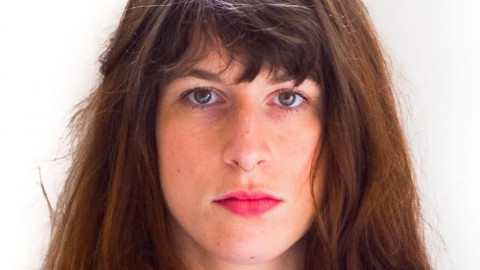
Madeleine Ryan
I am autistic and much of the terminology that’s used to describe autism often feels confusing, and disempowering.
Although the subject is frequently in the news and being talked about the diagnostics coined by doctors, professors and scientists in relation to it are often disconnected from my life, and the lives of autistic adults and children. All the puzzling terms, labels and categories can make it harder for us to receive help when we need it and harder for the rest of the world to understand us.
The latest example is the National Disability Insurance Agency developing an alternative assessment process to determine which autistic adults and children are eligible to receive support under the National Disability Insurance Scheme.
Instead of categorising the autistic into three "levels" (as outlined in the Diagnostic and Statistical Manual of Mental Disorders' "autism severity assessment scale" ) the autistic will now be placed into numerous "subtypes".
Prior to this, those who fell into level one were unlikely to receive support from the NDIS.
Then, this month, the NDIS mistakenly published a plan to assist only the autistic on level three, before announcing the development of "subtypes" and the elimination of "levels" altogether.
This absurd sequence of events reveals a desire to cut the number of autistic people eligible for funding and to do so in a manner that is profoundly irresponsible. Categorising autistic people in these ways implies there are some who need support and others who don’t. The reality is that every autistic child and adult needs help.
We process life, information and relationships completely differently from the way the majority of people do, and the systems in place in our society are unable to cater for that. Autism is a sign that a person is going to need help. Period. Fixating on our individual differences in order to exclude some of us from receiving the support that we require seems convoluted, and negligent.
This urge to categorise can also give the wrong impression of what autism is. For example, the diagnostic manual's "severity levels" reinforce the illusion of autism as being like a scale, rather than a spectrum. And a spectrum doesn’t mean varying degrees of something; it means the same something, repeated. Just as each colour in the spectrum of a rainbow is no more or less a colour than any other, no autistic person is any more or less autistic than any other - and no two colours are the same.
I may have certain behavioural or intellectual characteristics, which are rather unflatteringly referred to as "co-morbids", such as: depression, epilepsy, slower learning ability, anxiety, being non-verbal or mute, having sleep problems, or difficulties with anger management, Tourette syndrome and so on. However, regardless of the traits that may accompany it, autism is what it is and it cannot be changed or varied in degree. It isn’t measurable like a temperature, or bandwidth speed. It’s how my brain is wired.
Even the terms "low" and "highly functioning" are unhelpful because describing someone as "low functioning" undermines their potential capabilities and capacity to become autonomous, while "highly functioning" simply means an autistic person is better at pretending not to be autistic, and the challenges they face are minimised.
The autistic are constantly being misunderstood and mistreated because autism is deeply misunderstood and mistreated. And if the NDIS is going to help, it must support our individual differences rather than use them against us.
Coming up with more categories, labels and "subtypes" isn’t the answer. Thanks to these, we live in a world that has no idea what to call us, continuously makes assumptions about us, slots us into levels that don’t make sense, and cannot truly connect with us. Which is ironic, given that we are the ones who supposedly have a neurological disposition defined by a struggle to communicate.
It is highly unlikely that an autistic person came up with the idea of being a person "with autism" or "having autism" because autism is not something that we "have" it’s something that we are. It’s not an illness or a disease. Every experience that we have is an autistic experience. It’s our way of being, and our way of seeing. It shapes our lives and identities. And the crippling confusion and miscommunication around this is going to remain until the medical, scientific and administrative worlds finally acknowledge that autism doesn’t belong to them - it belongs to the autistic.
Madeleine Ryan is a freelance writer.